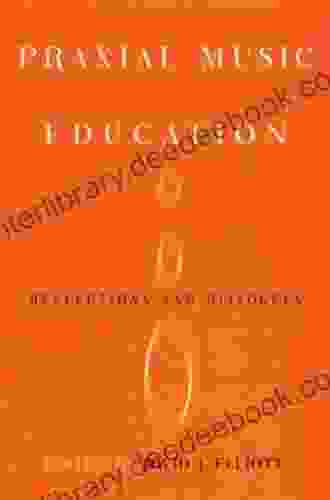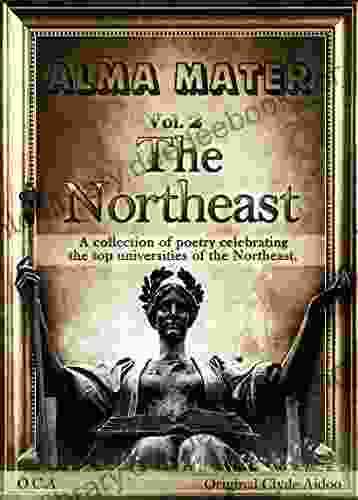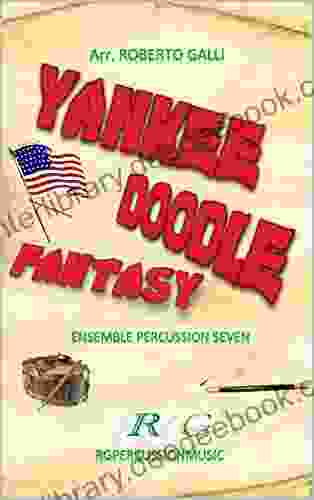Praxial Music Education: Reflections and Dialogues

Praxial Music Education is a progressive approach to music learning that places emphasis on the practical, embodied, and experiential aspects of music-making. It is rooted in the belief that music learning is not merely about acquiring knowledge and skills, but also about developing a deep and meaningful connection with music through active participation and engagement.
4.7 out of 5
| Language | : | English |
| File size | : | 2173 KB |
| Text-to-Speech | : | Enabled |
| Enhanced typesetting | : | Enabled |
| Word Wise | : | Enabled |
| Print length | : | 352 pages |
| Lending | : | Enabled |
| Screen Reader | : | Supported |
Praxial Music Education has its roots in the work of renowned music educators such as Christopher Small, David Elliott, and Lucy Green. These educators recognized the limitations of traditional music education methods, which often prioritize rote learning and technical proficiency over the cultivation of musical understanding and creativity.
Key Principles of Praxial Music Education
Praxial Music Education is based on several key principles that distinguish it from traditional approaches to music learning:
- Emphasis on Practice: Praxial Music Education places utmost importance on the act of music-making itself. Students are encouraged to engage in regular music practice, not merely as a means to improve technical skills, but as a way to develop their musical intuition and understanding.
- Embodied Learning: Praxial Music Education recognizes the importance of the body in music learning. Students are encouraged to use their bodies to express themselves musically, through singing, playing instruments, and movement.
- Experiential Learning: Praxial Music Education places a strong emphasis on experiential learning, whereby students learn through ng. They are given opportunities to create and perform their own music, experiment with different musical styles, and engage with music in various social and cultural contexts.
- Social and Collaborative Learning: Praxial Music Education promotes social and collaborative learning through group music-making activities. Students learn to work together, communicate musically, and support each other's musical development.
- Transformative Learning: Praxial Music Education aims to foster transformative learning, where students undergo a deep and meaningful change in their understanding of music and their relationship with it.
Benefits of Praxial Music Education
Praxial Music Education offers numerous benefits for students of all ages and backgrounds:
- Enhanced Musical Understanding: Praxial Music Education helps students develop a deeper understanding of music, not just as a set of rules and techniques, but as a living, breathing art form.
- Increased Creativity: Through active participation and experimentation, Praxial Music Education fosters creativity and encourages students to express themselves musically.
- Improved Performance Skills: While Praxial Music Education does not solely focus on technical proficiency, students often experience an improvement in their performance skills as a result of the emphasis on practice and experiential learning.
- Social and Emotional Development: Group music-making activities promote social and emotional development, as students learn to communicate, collaborate, and support each other.
- Well-being and Health: Music-making has been shown to have positive effects on well-being and health, reducing stress, improving mood, and enhancing cognitive function.
Challenges of Praxial Music Education
While Praxial Music Education has numerous benefits, it also presents certain challenges:
- Teacher Training: Implementing Praxial Music Education requires teachers who are trained in this approach. This may require additional professional development opportunities for educators.
- Assessment: Assessing student learning in Praxial Music Education can be challenging, as it often goes beyond traditional measures of technical proficiency.
- Time Constraints: Implementing Praxial Music Education effectively requires significant time for music practice and experiential learning. This can be a挑战 in school settings with limited time for music education.
- Resources and Facilities: Praxial Music Education may require specialized resources and facilities, such as instruments, practice spaces, and recording equipment.
Perspectives from Educators and Researchers
Leading educators and researchers in the field of Praxial Music Education share their insights:
"Praxial Music Education is about more than just learning to play an instrument or sing. It's about developing a deep and meaningful connection with music through active participation and engagement."
Christopher Small, renowned music educator and author
"Praxial Music Education recognizes the importance of the body and the social context in music learning. It's about creating a space where students can express themselves musically, learn from each other, and experience the transformative power of music."
David Elliott, music educator and researcher
"Praxial Music Education has the potential to revolutionize music education. By focusing on practice, embodied learning, and social collaboration, it can help students develop a lifelong love of music and its transformative benefits."
Lucy Green, music education researcher and advocate
Praxial Music Education is a powerful and transformative approach to music learning that has the potential to revolutionize music education. By emphasizing practice, embodied learning, experiential learning, social collaboration, and transformative learning, Praxial Music Education can foster a deep and meaningful connection with music, enhance musical understanding, creativity, performance skills, and well-being. While it presents certain challenges, the benefits of Praxial Music Education far outweigh the obstacles, making it a valuable investment in the musical and personal development of students.
As educators and researchers continue to explore and refine Praxial Music Education, it is hoped that this approach will become increasingly accessible to students of all ages and backgrounds, enabling them to experience the transformative power of music.
4.7 out of 5
| Language | : | English |
| File size | : | 2173 KB |
| Text-to-Speech | : | Enabled |
| Enhanced typesetting | : | Enabled |
| Word Wise | : | Enabled |
| Print length | : | 352 pages |
| Lending | : | Enabled |
| Screen Reader | : | Supported |
Do you want to contribute by writing guest posts on this blog?
Please contact us and send us a resume of previous articles that you have written.
 Page
Page Chapter
Chapter Reader
Reader Paperback
Paperback E-book
E-book Magazine
Magazine Newspaper
Newspaper Paragraph
Paragraph Sentence
Sentence Glossary
Glossary Bibliography
Bibliography Synopsis
Synopsis Annotation
Annotation Footnote
Footnote Manuscript
Manuscript Codex
Codex Classics
Classics Narrative
Narrative Biography
Biography Autobiography
Autobiography Memoir
Memoir Reference
Reference Encyclopedia
Encyclopedia Dictionary
Dictionary Narrator
Narrator Resolution
Resolution Librarian
Librarian Card Catalog
Card Catalog Borrowing
Borrowing Stacks
Stacks Scholarly
Scholarly Lending
Lending Academic
Academic Journals
Journals Thesis
Thesis Dissertation
Dissertation Storytelling
Storytelling Awards
Awards Reading List
Reading List Theory
Theory Daniel M Hausman
Daniel M Hausman Paul Lisicky
Paul Lisicky Vinayak Chaturvedi
Vinayak Chaturvedi Jane Halliwell Green
Jane Halliwell Green Eva Barnes
Eva Barnes Roderick G Eggert
Roderick G Eggert Beth Luey
Beth Luey Fabio Crestani
Fabio Crestani Katharine E Smith
Katharine E Smith Richard Raskin
Richard Raskin Em Brown
Em Brown Lavinia Greenlaw
Lavinia Greenlaw William Alexander
William Alexander Brighton Walsh
Brighton Walsh Marcia Quackenbush
Marcia Quackenbush A S Bhalla
A S Bhalla Simon Goldhill
Simon Goldhill V Castro
V Castro Nicholas Monsarrat
Nicholas Monsarrat Koni Scavella
Koni Scavella
Light bulbAdvertise smarter! Our strategic ad space ensures maximum exposure. Reserve your spot today!
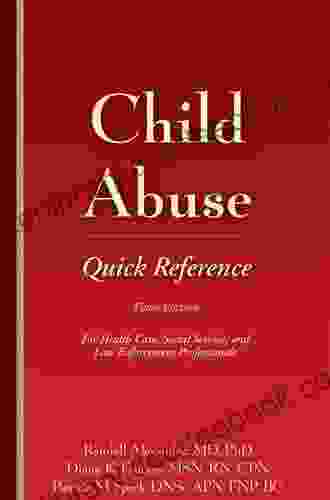
 Paulo CoelhoChild Abuse Quick Reference: Essential Information for Healthcare Providers,...
Paulo CoelhoChild Abuse Quick Reference: Essential Information for Healthcare Providers,... Ian McEwanFollow ·13.1k
Ian McEwanFollow ·13.1k Ivan TurgenevFollow ·2.8k
Ivan TurgenevFollow ·2.8k Tom HayesFollow ·16.3k
Tom HayesFollow ·16.3k Vince HayesFollow ·14k
Vince HayesFollow ·14k Ben HayesFollow ·12.7k
Ben HayesFollow ·12.7k Jeffrey CoxFollow ·12.2k
Jeffrey CoxFollow ·12.2k Nathaniel HawthorneFollow ·7.2k
Nathaniel HawthorneFollow ·7.2k Gustavo CoxFollow ·3.4k
Gustavo CoxFollow ·3.4k

 Bo Cox
Bo CoxDiscover the Enchanting Allure of Collingwood, Ontario,...
Nestled amidst the breathtaking landscape of...

 Ralph Ellison
Ralph EllisonThe Street of Clocks Poems: A Poetic Journey Through Time
Welcome to The Street...
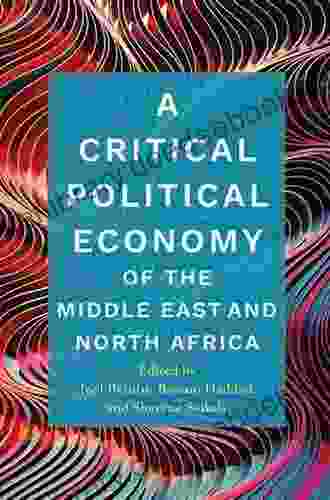
 Dwight Blair
Dwight BlairCritical Political Economy of the Middle East and North...
The Middle East and...

 Deion Simmons
Deion SimmonsPerfect Strategies For Painting Amazing Marine Creatures...
Gouache is a...
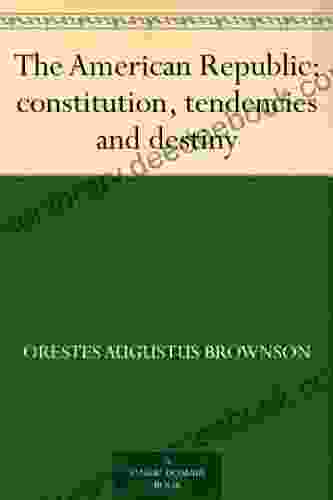
 Hugh Bell
Hugh BellThe American Republic: Constitution, Tendencies, and...
The American Republic,...
4.7 out of 5
| Language | : | English |
| File size | : | 2173 KB |
| Text-to-Speech | : | Enabled |
| Enhanced typesetting | : | Enabled |
| Word Wise | : | Enabled |
| Print length | : | 352 pages |
| Lending | : | Enabled |
| Screen Reader | : | Supported |


